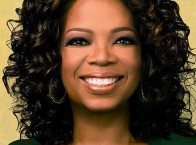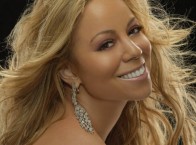Collins joined Genesis in 1970 as the group's drummer and became their lead vocalist in 1975 following the departure of the original lead singer Peter Gabriel. Learn 50 things about your favorite artist Phil Collins.
1. Philip David Charles "Phil" Collins, LVO is an English singer, songwriter, multi-instrumentalist, music producer and actor.
2. He gained fame as both the drummer and lead singer for the rock band Genesis, and he also gained worldwide fame as a solo artist.
3. Collins is one of the most successful songwriters and performers of all time, singing the lead vocals on dozens of hit albums and singles in the UK and the US between 1976 and 2010, either as a solo artist or with Genesis.
4. His solo singles, sometimes dealing with lost love and often featuring his distinctive gated reverb drum sound, ranged from the atmospheric "In the Air Tonight", dance-rock of "Sussudio", piano-driven power ballad "Against All Odds", to the political and religious connotations of "Another Day in Paradise".
5. Collins has been described by AllMusic as "one of the most successful pop and adult contemporary singers of the '80s and beyond".
6. Collins joined Genesis in 1970 as the group's drummer and became their lead vocalist in 1975 following the departure of the original lead singer Peter Gabriel.
7. His solo career, which was launched in 1981 and was heavily influenced by his personal life and soul music, brought both himself and Genesis greater commercial success.
8. Collins's total worldwide sales as a solo artist are 150 million.
9. Collins has won numerous music awards throughout his career, including seven Grammy Awards, six Brit Awards-winning Best British Male three times, three American Music Awards, an Academy Award, two Golden Globe Awards and a Disney Legend Award in 2002 for his solo work.
10. He received a star on the Hollywood Walk of Fame in 1999, was inducted into the Songwriters Hall of Fame in 2003, and into the Rock and Roll Hall of Fame as a member of Genesis in 2010.
11. Collins was ranked number 10 in "The Greatest Drummers of All Time" list by Gigwise and number nine in a list of "The 20 greatest drummers of the last 25 years" by MusicRadar in 2010.
12. He was inducted into the Modern Drummer Hall of Fame in 2012.
13. Collins is one of only three recording artists (along with Paul McCartney and Michael Jackson) who have sold over 100 million albums worldwide both as solo artists and (separately) as principal members of a band.
14. During his most successful period as a solo artist between 1981 and 1990, Collins had three UK number-one singles and seven number-one singles on the US Billboard Hot 100, as well as a US number one with Genesis in 1986.
15. When his work with Genesis, his work with other artists, as well as his solo career is totalled, Collins had more top 40 hits on the Billboard Hot 100 chart during the 1980s than any other artist.
16. In 2008, Collins was ranked the 22nd most successful artist on the "Billboard Hot 100 All-Time Top Artists".
17. Although one of the world's best-selling recording artists and a highly respected drummer, Collins has garnered significant criticism over the years from music journalists and fellow artists.
18. He announced his retirement in 2011 to focus on his family life, though he continued to write songs and in 2013 he said he was considering a return to the music industry.
19. Philip David Charles Collins was born on 30 January 1951 in Chiswick, Hounslow, the son of Winifred M. "June", a theatrical agent, and Greville Philip Austin Collins, an insurance agent.
20. He was given a toy drum kit for Christmas when he was five.
21. Later, his uncle made him a makeshift one that he used regularly. As Collins grew older, these were followed by more complete sets bought by his parents.
22. He practised by playing to music on the television and radio, but never learned to read and write conventional musical notation; instead, he used a system he devised himself.
23. According to Barbara Speake, founder of the eponymous stage school which he would later attend, Collins always had a rare ear for music: "Phil was always special; aged five he entered a Butlins talent contest singing Davy Crockett, but he stopped the orchestra halfway through to tell them they were in the wrong key."
24. As a teenager, Collins went to learn drum rudiments. He learned the basic rudiments under the tuition of Lloyd Ryan and later studied further under Frank King.
25. However, Collins regretted that he never mastered musical notation, saying: "I never really came to grips with the music. I should have stuck with it. I've always felt that if I could hum it, I could play it. For me, that was good enough, but that attitude is bad." Lloyd Ryan recalled: "Phil always had a problem with reading. That was always a big problem for him. That's a shame because reading drum music isn't that difficult."
26. Collins's particularly strong early influence was the Beatles and their drummer Ringo Starr.
27. He also enthusiastically followed the lesser-known London band the Action, whose drummer he would copy and whose work introduced him to the soul music of Motown and Stax Records.
28. Collins was also influenced by the jazz and big band drummer Buddy Rich, whose opinion on the importance of the hi-hat prompted Collins to stop using two bass drums and start using the hi-hat.
29. While attending Chiswick County School for Boys, Collins formed a band called the Real Thing and later joined the Freehold. With the latter group, he wrote his first song titled "Lying Crying Dying".
30. His professional acting training began at the age of 14, when he entered the Barbara Speake Stage School, a fee-paying but non-selective independent school in Acton, London, whose talent agency had been established by his mother.
31. Collins began a career as a child actor while at the Barbara Speake Stage School and won his first major role as the Artful Dodger in the London production of Oliver!
32. He was an extra in the Beatles film A Hard Day's Night, as one of the hundreds of screaming teenagers during the TV concert sequence and seen fleetingly in a close-up.
33. He was in Calamity the Cow, made by the Children's Film Foundation.
34. He was in Chitty Chitty Bang Bang as one of the children who storms the castle at the end of the film, but it was cut.
35. He also auditioned for the role of Romeo in Romeo and Juliet, a role won by fellow Artful Dodger actor Leonard Whiting.
36. Collins was among the last three finalists for the role of I.Q. on the American children's television show The Bugaloos (he lost out to English actor/musician John McIndoe).
37. Despite the beginnings of an acting career, Collins continued to gravitate towards music.
38. Collins's first record deal came as drummer for Hickory, who changed their name to Flaming Youth by the time of their sole album, Ark 2.
39. After a year of touring, band tensions and the lack of commercial success dissolved the group.
40. In 1970, the 19-year-old Collins played percussion on the George Harrison song "Art of Dying", released on his triple album All Things Must Pass. Harrison later credited him in the liner notes to the remastered CD version of the album released in 2000.
41. In 1970, Collins answered a Melody Maker classified ad for "...a drummer sensitive to acoustic music, and 12-string acoustic guitarist". Genesis placed the advert after having already lost three drummers over two albums. The audition occurred at the home of Peter Gabriel's parents. Collins arrived early, listened to the other auditions while swimming in Gabriel's parents' pool, and memorised the pieces before his own audition. Collins won the audition.
42. The band's first studio album with Collins as their lead vocalist was 1976's A Trick of the Tail, which reached No. 3 in the UK and charted in the U.S. top 40.
43. The last studio album with him as their lead vocalist was 1991's We Can't Dance; it was supported by an extensive tour across the world in 1992.
44. He and Gabriel reunited with other Genesis members in 1999 to re-record "The Carpet Crawlers" for Genesis's Turn It On Again: The Hits.
45. Collins made his live debut as a solo performer appearing at the invitation of record producer Martin Lewis at the Amnesty International benefit show, The Secret Policeman's Other Ball at the Theatre Royal in London in September 1981, performing two songs from Face Value including "In the Air Tonight" and "The Roof Is Leaking" accompanied by Troy Street United.
46. Collins was appointed a Lieutenant of the Royal Victorian Order (LVO) in 1994, in recognition of his work on behalf of the Prince's Trust.
47. Collins has stated he is a supporter of animal rights and People for the Ethical Treatment of Animals (PETA).
48. In February 2000, Collins and his third wife Orianne founded the Little Dreams Foundation, a non-profit organisation which aims to "realise the dreams of children in the fields of sports and art" by providing future prodigies aged 4 to 16 years with financial, material, and mentoring support with the help of experts in various fields.
49. Collins was inspired to found Little Dreams Foundation after receiving letters from children asking him how they could break into the music industry.
50. Collins supports the South African charity the Topsy Foundation, which provides relief services to some of South Africa's most under-resourced rural communities through a multi-faceted approach to the consequences of HIV/AIDS and extreme poverty. He donates all the royalties earned from his music sales in South Africa to the organisation.
Source: Wikipedia.org

 Share on Facebook
Share on Facebook




















